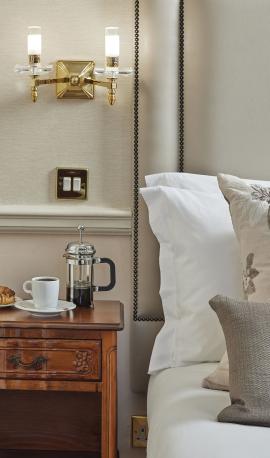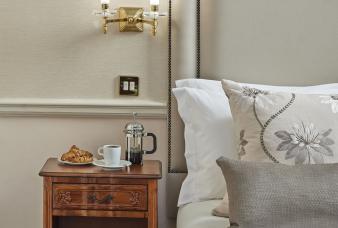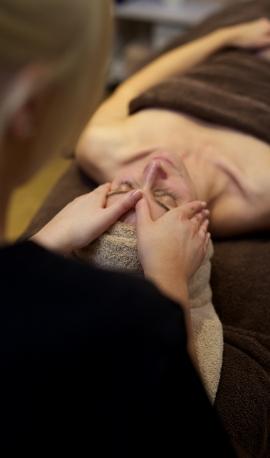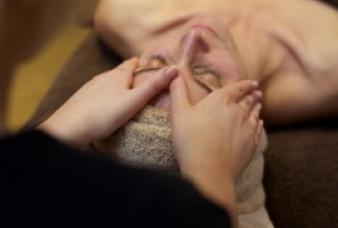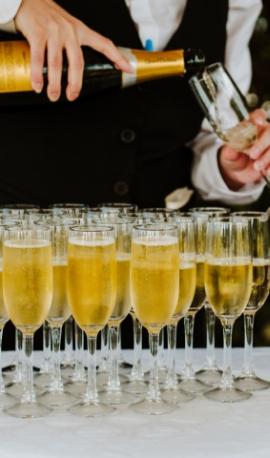In a nutshell, what do Canine Partners do?
Canine Partners is a registered charity that trains amazing assistance dogs to transform the lives of people living with disabilities, boosting their confidence and independence. More than 1.2 million people in the UK use a wheelchair, and a significant number of those would benefit from a canine partner. The dogs are taught a range of everyday tasks including picking up and fetching items, opening doors and helping to dress a person. They can even help to load and unload a washing machine and they can fetch help in an emergency. We hope to create 80 partnerships in 2018.
Who is benefiting from a Canine Partners dog?
Canine Partners currently help adults aged 18 and over, both civilians and former service personnel, who have a physical disability or condition that affects their daily life and limits their independence. Some examples of the disabilities and conditions we work with are multiple sclerosis, cerebral palsy, and Ehlers-Danlos syndrome, as well as spinal injuries.
We also work in partnership with Help for Heroes, The Royal British Legion and other services organisations to provide assistance dogs for veterans and those wounded in service.
What sort of training do the dogs need to go through? And what tasks do they help with?
Our canine partners undertake a specialist two-year training programme, which begins from puppy selection at seven to eight weeks old. They are trained to help with everyday tasks such as opening and closing doors, unloading and loading the washing machine, picking up dropped items, and pressing buttons and switches. They can even help their partner get undressed, remove a card from an ATM and fetch help in an emergency!
Canine partners start their training by spending 12 to 14 months in puppy training with a volunteer, known as a puppy parent. The puppy parent cares for them full-time in their own home under the supervision of our trainers. They teach the puppies basic obedience, social skills and the core commands touch, tug and retrieve.
At around 14 months old they move into advanced training at either our Southern Centre or Midlands Centre. During the advanced the core skills they have learnt as a puppy are extended so they are able to open doors, retrieve dropped items, press lift buttons and unload the washing machine. They continue obedience training and visit local towns and shops to ensure they are confident and well-behaved in all situations. Once a dog is matched with someone on the waiting list, their skill set is specially tailored to suit that person who they will soon be partnered with.
Canine Partners had a very royal visitor towards the end of last year - Her Majesty The Queen! How did that go? Did she enjoy her visit?
As part of a tour of West Sussex, Her Majesty arrived at our Southern Centre to come and see the work that our amazing dogs do. The Queen had the opportunity to meet our dogs at all stages of their special training. The youngest puppy she met, black Labrador Flint, was just 12 weeks old and keen to make an impression! The Queen commented on how friendly he was and not at all shy! She was impressed by the dogs’ ability to unload the washing machine and pick up dropped items, asking questions throughout and commenting on their impressive skills. As is customary with a royal guest, The Queen was presented with gifts from Canine Partners. Demo dog Yarna politely curtsied before handing over a purple posy to Her Majesty.
You don’t receive any government funding – so how do you raise the money to help people?
We rely on public donations and legacies in order to train our amazing dogs to increase the quality of life and independence for more people each year. We are fortunate to have over 800 volunteers across Great Britain, who help to train and foster our puppies, fundraise for us, organise and help at events, and help us with admin, which keeps our costs down. Fundraising activities include challenges such as the London Abseil in June and the 02 Climb in July, events from coffee mornings to large-scale dinner dances, collections, selling merchandise, and donations.
How can the general public help?
There are many different ways to support our work. You can sponsor one of our amazing dogs through our My Amazing Puppy and Gift of Independence schemes. You could fundraise by running a marathon, hold a cake sale or organise a dog walk. You could even take part in a challenge such as the London to Paris Cycle Ride, Pedal for Paws, parachute with Skyline or even trek Machu Picchu. If you’d prefer to volunteer your time, there are plenty of ways you can help us by looking after our puppies, becoming a speaker, donating your professional skills or starting a community group. Every pound you raise for us and every minute of your time you volunteer will help us to continue transforming the lives of people living with disabilities.
We are very excited that you are coming to Tylney Hall on Friday 8th June – can you tell us more about the event?
We are delighted to be at the stunning Tylney Hall in June to show guests a full demonstration of the tasks our amazing dogs can do to transform lives. Guests will be met on arrival by our meet and greet dogs while they enjoy drinks and canapes, before getting the opportunity to see a ‘day in the life’ style demonstration. This will be followed by a moving talk from one of our partners about how their canine partner has given them greater independence and truly changed their life for the better. Singer and actress, Patti Boulaye OBE, will also treat guests to a short talk. The lunch will include a raffle, with prizes including Bed & Breakfast at Tylney Hall Hotel and a spa day for two people. We are looking forward to joining you for a wonderful luncheon!
Find out more about Canine Partners' Luncheon at Tylney here
Or to book tickets please call Canine Partners directly on 01530 225939 or email: helenw@caninepartners.org.uk

